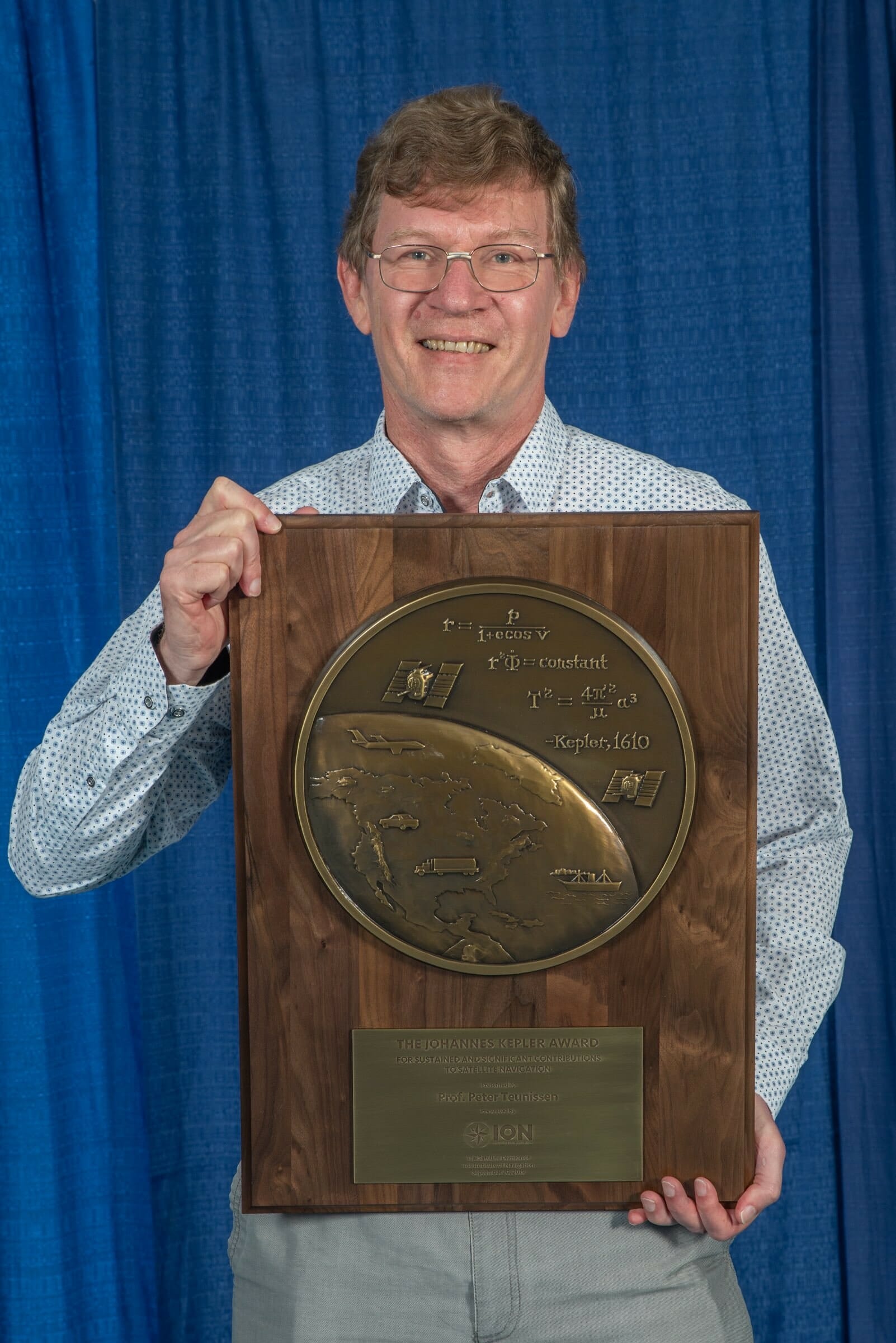Revolutionizing satellite navigation
Peter Teunissen, professor in Mathematical Geodesy and Positioning at Delft University of Technology was honored with the career-highlight Johannes Kepler Award, presented by the Institute of Navigation (ION)’s satellite division.
Teunissen was recognized for his influential and groundbreaking contributions to the algorithmic foundations of satellite navigation, and for sustained dedication to the global education of the next generation of navigation engineers. Teunissen laid the mathematical and algorithmic foundation for reliability theory and he invented amongst others the LAMBDA (Least Squares Ambiguity Decorrelation Adjustment) method which revolutionized high precision GNSS positioning capabilities. His method has become the worldwide algorithmic standard and an indispensable tool that is most widely used in land, air and space navigation; positioning and attitude determination; and in surveying and geodesy.
The Johannes Kepler Award recognizes and honors an individual for sustained and significant contributions to the development of satellite navigation. It is the highest honor bestowed by the ION’s Satellite Division. The award ceremony took place in Miami (USA) during the recent ION-GNSS conference.
Best in his field
Teunissen is currently stationed in Perth, Australia, and was recently announced to be ‘best in the world in his field’ by the national newspaper The Australian. His research program ‘Theoretical and Model Strengthening of future GNSS to Yield Improved Geospatial Information for Tomorrow’s Society’ is an ongoing collaboration between Australian and Delft University of Technology researchers.
